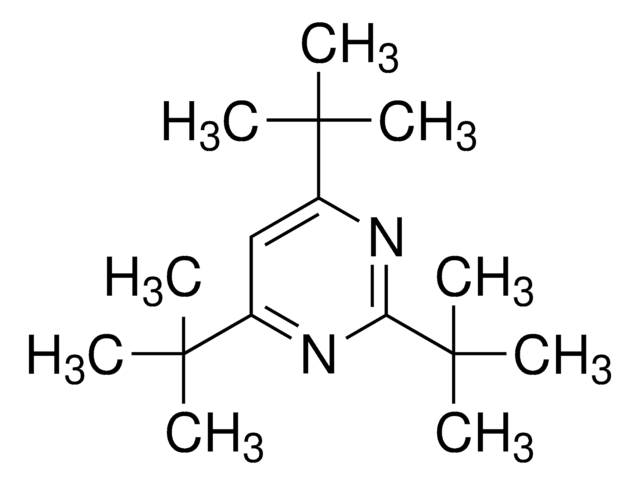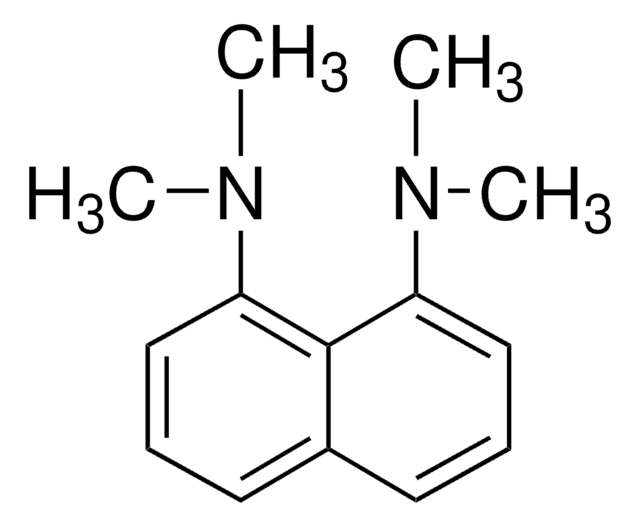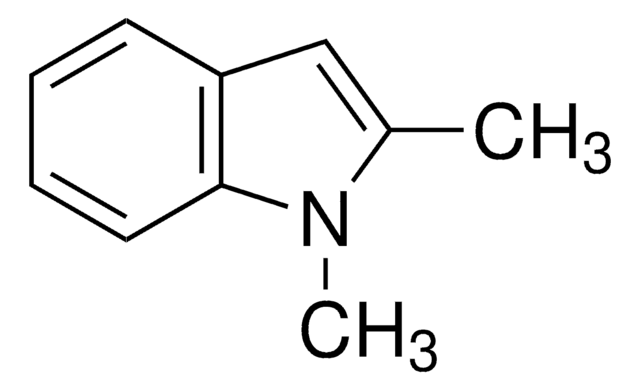249505
2,6-Di-tert-butyl-4-methylpyridine
98%
Synonyme(s) :
2,6-Bis(1,1-dimethylethyl)-4-methylpyridine, 2,6-Bis(tert-butyl)-4-methylpyridine, 2,6-Ditert-butyl-4-methylpyridine, 4-Methyl-2,6-di-tert-butylpyridine
About This Item
Produits recommandés
Pureté
98%
Forme
solid
Indice de réfraction
n20/D 1.4763 (lit.)
Point d'ébullition
233 °C (lit.)
Pf
33-36 °C (lit.)
Solubilité
ethanol: soluble 5%, clear to slightly hazy, colorless to dark yellow
Température de stockage
2-8°C
Chaîne SMILES
Cc1cc(nc(c1)C(C)(C)C)C(C)(C)C
InChI
1S/C14H23N/c1-10-8-11(13(2,3)4)15-12(9-10)14(5,6)7/h8-9H,1-7H3
Clé InChI
HVHZEKKZMFRULH-UHFFFAOYSA-N
Vous recherchez des produits similaires ? Visite Guide de comparaison des produits
Catégories apparentées
Description générale
Application
- in the synthesis of 1,2-dihydro-2-silanaphthalene derivatives
- as base in PtCl4-catalyzed cyclization reactions of homopropargyl azide derivatives
- diastereoselective synthesis of β-thiomannopyranosides
Mention d'avertissement
Warning
Mentions de danger
Conseils de prudence
Classification des risques
Acute Tox. 4 Oral - Eye Irrit. 2 - Skin Irrit. 2 - STOT SE 3
Organes cibles
Respiratory system
Code de la classe de stockage
11 - Combustible Solids
Classe de danger pour l'eau (WGK)
WGK 3
Point d'éclair (°F)
183.2 °F - closed cup
Point d'éclair (°C)
84 °C - closed cup
Équipement de protection individuelle
dust mask type N95 (US), Eyeshields, Gloves
Certificats d'analyse (COA)
Recherchez un Certificats d'analyse (COA) en saisissant le numéro de lot du produit. Les numéros de lot figurent sur l'étiquette du produit après les mots "Lot" ou "Batch".
Déjà en possession de ce produit ?
Retrouvez la documentation relative aux produits que vous avez récemment achetés dans la Bibliothèque de documents.
Les clients ont également consulté
Notre équipe de scientifiques dispose d'une expérience dans tous les secteurs de la recherche, notamment en sciences de la vie, science des matériaux, synthèse chimique, chromatographie, analyse et dans de nombreux autres domaines..
Contacter notre Service technique












